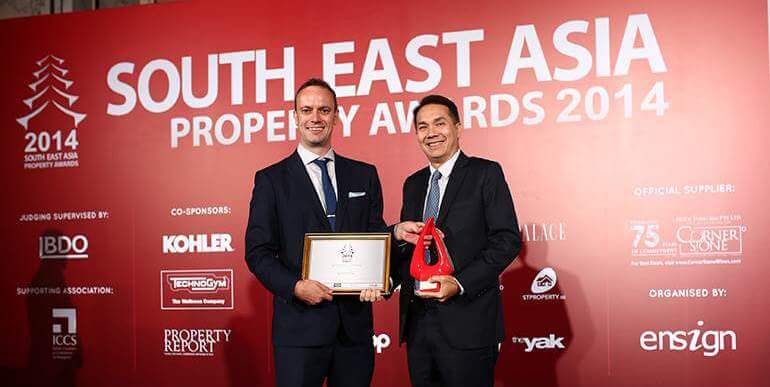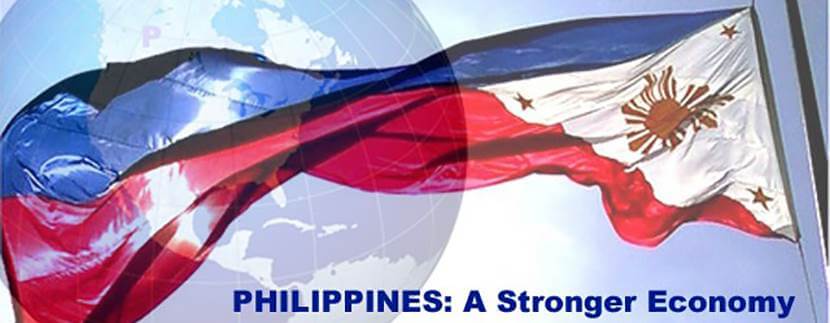
Philippine President Benigno Aquino is lifting millions out of poverty and boosting the middle class even as he struggles to increase government spending. Ayala Corp. (AC) is reaping the gains.
The nation’s oldest family-controlled company has more than tripled its capital spending in the past five years to expand its property, banking and infrastructure units and cash in on one of the fastest expansions in Asia. Businesses are counting on structural reforms, a young population and rising remittances to keep their revenue surging, while wrestling with port logjams and delayed project rollouts.
“There are shifts in consumption patterns as the middle class expands, which provide a lot of opportunities for the group,” Ayala Chief Financial Officer Delfin Gonzalez said in an interview in Manila this week, pointing to growing demand for homes, cars and loans. “We’re going full steam ahead.”
Rising consumer spending, which accounts for about 70 percent of the economy, increases the chance that the growth momentum can be sustained even if investment slows. Gross domestic product will rise about 6 percent every year at least through 2019, the International Monetary Fund predicts, the longest such stretch since the 1950s post-war boom, according to data compiled by Bloomberg based on official figures.
The economy expanded 5.3 percent in the three months through September from a year earlier, data showed today, slower than all estimates in a Bloomberg News survey, and the weakest pace since 2011. GDP grew 0.4 percent from the previous quarter.
Right Places
“Although the data is clearly disappointing, the Philippines is still among the fastest-growing economies in emerging Asia,” Daniel Martin, an analyst at Capital Economics Ltd. in Singapore, said in a note. “Government spending is unlikely to continue pulling down growth, given that public finances are healthy. Meanwhile, falling inflation and buoyant remittances will support consumer spending.”
Government spending declined 2.6 percent last quarter from a year earlier, while household consumption rose 5.2 percent and services gained 5.4 percent. Industrial output climbed 7.6 percent.
Barclays Plc today cut its forecast for GDP growth this year to 6 percent from 6.5 percent, while maintaining its estimate for next year at 6.5 percent.
Growth of 6.8 percent in the fourth quarter is “very doable,” even as the government struggles with spending bottlenecks, Economic Planning Secretary Arsenio Balisacan said at a briefing in Manila today.
More than a third of the country’s population is below the age of 15 years, according to U.S. Census Bureau data, among the youngest in the Asia-Pacific region. Private consumption grew more than 5 percent in each of the 13 quarters through September, data compiled by Bloomberg show.
Doubling Revenue
Remittances, which made up about 10 percent of the economy last year, rose to a record $23 billion in 2013. The central bank forecasts funds from overseas will rise 5.5 percent this year and 5 percent in 2015.
All this bodes well for Ayala, a 180-year-old company that was founded as a distillery by the Spanish nephew of the Archbishop of Manila. Its businesses today include the nation’s top property developer, the No. 2 bank by market value and the second-biggest telecommunications firm.
“A young population and a rapidly growing economy are benefiting companies like Ayala,” said April Lee-Tan, head of research at COL Financial Group Inc. in Manila, which rates the company a buy. “Ayala’s businesses are all in the right places; areas where consumer growth is strong, like real estate, banking.”
Ayala shares have risen about 33 percent this year, compared with a 24 percent gain for the benchmark stock index.
Best Shape
Since taking office in 2010, Aquino has tackled corruption, won investment-grade ratings and boosted business confidence. The presidential election is due to be held in May 2016, and Aquino isn’t allowed to run again.
Private consumption has typically remained strong in the run-up to the vote, even as direct and portfolio investors have been cautious, HSBC Holdings Plc said in a report this month, based on data going back to the 1980s.
“Whoever will take office in June 2016 will inherit an economy that has less debt, more able workers, fewer dependents, low borrowing costs, and excess savings,” Trinh Nguyen, a Hong Kong-based analyst at HSBC, said in the report. “We believe the Philippines, as an economy, in 2016 will be in the best shape in decades.”
Decent Car
The Philippines is forecast to be among the world’s five fastest-growing economies this year and next, according to Bloomberg surveys. Companies including Ayala and SM Investments Corp. (SM), which owns the nation’s largest bank and second-biggest property developer, are counting on the pace being sustained.
“Philippines is a country where we’ve passed several presidential administrations, each with its own focus, and businesses have been able to survive all this time without a lot of disruptions,” SM Investments Vice Chairman Teresita Sy-Coson said last month. “We’re in the consumer market. Majority of us will still continue to do well.”
Her confidence is bolstered by young consumers like Renee Fopalan, who last week bought a new $12,744 Mitsubishi Mirage car to replace her previous vehicle. The 28-year-old writer and law student also became a homeowner this year.
“I’m confident my income will be much higher in a few years,” said Fopalan. “A decent looking car is part of the package in my job: you have to look like you’re able to take care of yourself.”
To contact the reporter on this story: Karl Lester M. Yap in Manila at kyap5@bloomberg.net
To contact the editors responsible for this story: Stephanie Phang at sphang@bloomberg.net Rina Chandran, Iain McDonald
Source: Karl Lester M. Yap | Bloomberg.com



